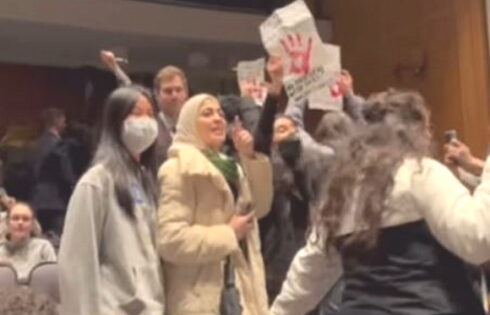
Jury prevented from considering full scope of remand
I didn’t see this one coming: A campus newspaper has called out a federal judge for apparently stacking the deck against a student accused of sexual assault.
The 1st U.S. Circuit Court of Appeals overruled U.S. District Judge Denise Casper a year ago when she threw out a lawsuit against Boston College for railroading a male student. It ordered her to reconsider whether the college breached its contract with “John Doe” and deprived him basic fairness.
Senior college officials had warned adjudicators against the “no finding” option for Doe, and told them to give special treatment to a “prime alternative culprit” – the student whom Doe said confessed to groping the female student. Instead, that alternative culprit testified against Doe.
Even though Casper approved a jury trial nearly a year ago, the judge has been steadily whittling down what the jury actually gets to decide in the trial, which just started.
The Heights reports that Casper has gone so far that she may have violated the remand order from the 1st Circuit:
In the days leading up to the jury trial, which began Monday, Casper ruled in favor of BC, excluding the testimony of two witnesses at trial. Casper’s reasoning for excluding the testimony of Elizabeth Fee—a family friend of Doe’s—and Joseph Walcott-Lewis—Doe’s roommate at the time of the incident—clashes with the opinion handed down by the First Circuit in the summer of 2018.
Casper said the reasoning behind barring testimony from Fee and Walcott-Lewis was that this case is about whether the University “placed its thumb on the scale” regarding consideration of an alternative culprit defense. Fee’s testimony had to do with the fact that, from the time BC began disciplinary proceedings against Doe, Doe’s defense always hinged on the fact that he claimed another student had committed the assault.
MORE: 1st Circuit slaps down Boston College
The jury is now only allowed to decide whether the college violated Doe’s rights by putting the alternative culprit “at ease” before he testified in the proceeding.
It will not consider Doe’s broader argument that his “entire defense” depends on proving the alternative culprit should have been investigated, rather than goaded into testifying “without being under threat of investigation,” the Heights says:
Since potential discussion [of] the importance of the alternative culprit defense has been limited so severely, it’s unclear whether the jury will be able to tell if any alleged interference was important enough to impinge on Doe’s right to a fair hearing process.
The 1st Circuit’s ruling “differs from Casper’s interpretation,” and the judge’s limitation “could lead to issues for BC if Doe appeals the outcome of the jury trial,” the paper says.
Doe has already been frustrated by the judge, who cut him short in opening statements and his line of questioning on the first day of trial Monday.
She and the college both argued he was “trying to relitigate the disciplinary proceedings” instead of focusing on the only approved matter for the jury to consider – “the interactions between the disciplinary board and University administrators,” the Heights said.
Casper’s likely flouting of the 1st Circuit in the trial might not pass muster if Doe appeals.
The three-judge panel sent the case back to Casper on the grounds that a jury must decide “matters of fact”: whether administrators dismissed the alternative-culprit defense by putting that person “at ease,” and hence deprived Doe of a “fair procedure,” according to the Heights.
MORE: BC will face jury for allegedly railroading accused student
MORE: Judge blocks BC student suspension, says he’s likely to win
IMAGE: Minerva Studio/Shutterstock
Like The College Fix on Facebook / Follow us on Twitter







Please join the conversation about our stories on Facebook, Twitter, Instagram, Reddit, MeWe, Rumble, Gab, Minds and Gettr.